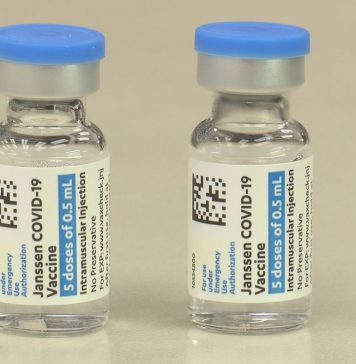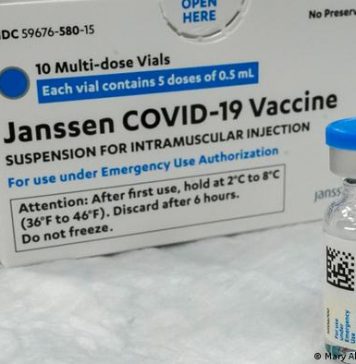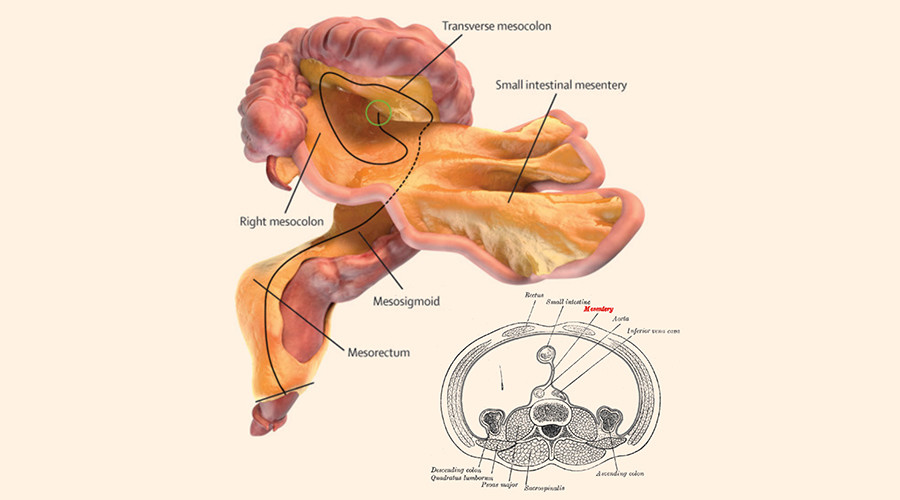FDA approves sale of eight new Swedish Match snus products
U.S. FDA sends letter to DNA4Life over consumer gene tests
Many U.S. veterans may face sexual health problems
Many U.S. veterans returning from service in Iraq and Afghanistan may encounter sexual health problems, a new study suggests.
Almost 18 percent of veterans screened positive for sexual dysfunction in initial visits at the post-deployment clinic at a veterans affairs medical center in Houston, researchers say.
It’s possible the actual prevalence of sexual dysfunction is much higher, because veterans, like many other people, may be reluctant to discuss sex with providers they are seeing for the first time, noted study co-author Dr. Drew Helmer, director of the War Related Illness and Injury Study Center at the Department of Veterans Affairs (VA) New Jersey Health Care System in East Orange.
“Patients are more likely to share their sexual health concerns when they trust their provider or when the provider explicitly asks about sexual health concerns,” Helmer said by email.
To assess sexual health, clinicians asked nearly 250 veterans about these issues as part of routine physical and mental health assessments done at the post-deployment clinic in 2011 and 2012.
On average, the veterans in the study were 31 years old. Most were male and more than half didn’t report having a primary romantic partner.
Veterans responded to a five-item questionnaire rating their level of functioning or impairment in various aspects of sexual health including libido and arousal, orgasms and satisfaction, and erections for men and vaginal lubrication for women. Possible total scores for the responses could range from five to 30, with higher scores indicating more severe sexual dysfunction.
One in four of the veterans reported serious impairment in at least one area, or some difficulties with at least three aspects of sexual functioning, the researchers report in the journal Sexual Medicine.
More than half of the veterans in the study had post-traumatic stress disorder (PTSD) and almost one third had depression. About 11 percent had experienced a traumatic brain injury, and roughly 27 percent had a problem with alcohol use.
Veterans were more likely to report sexual dysfunction if they had depression or PTSD, or if they were female.
Stress related to deployment and returning home can also contribute to sexual health problems for veterans and their partners, Helmer said.
Limitations of the study include the potential for PTSD to be over-diagnosed, because the initial screenings are designed to catch any potential cases, and some of these cases are ruled out during follow-up visits, the authors acknowledge.
Researchers also lacked data on the timing of prescription medication use, which might impact sexual functioning to the extent that drugs have sexual side effects.
Even so, the findings add to a growing body of evidence linking post-deployment problems such as depression or PTSD to sexual dysfunction, Dr. Benjamin Breyer, a researcher at the University of California, San Francisco, said by email.
Compared to the civilian population, veterans can face more mental health challenges and have increased rates of PTSD and depression, noted Breyer, who wasn’t involved in the study.
PTSD can lead to decreased sexual satisfaction for both men and women, and medications used to treat depression can lead to erectile dysfunction, decreased libido and delayed ejaculation, he added.
“Compounding these physiologic issues are complex social and relational challenges that meet the veteran when they return home to established relationships,” Breyer said. “If you’re suffering from depression or PTSD, it’s more difficult to relate to your spouse, which can strain the relationship and diminish sexual wellness.”
SOURCE: bit.ly/1Hv8sAf Sexual Medicine, published online November 2, 2015.
Jury still out on omega-3s for depression
(Reuters Health) – There is not enough evidence to support over-the-counter omega-3 fatty acid supplements as a treatment for depression, according to a new review.
“A number of other reviews investigating the impact of omega-3 fatty acids on depression and depressive disorders have also been conducted, and all of these also find discrepancies between studies, and inconsistencies in findings, and essentially find it difficult to draw convincing conclusions,” said lead author Katherine Appleton of the University of Bournemouth in the U.K.
“All reviews also conclude with the need for further evidence,” she said.
The new review included 26 randomized controlled trials involving almost 1,500 adults with major depressive disorder in total. The trials compared people who were given omega-3 fatty acid capsules and people given placebo pills.
Only one study compared omega-3 capsules to an antidepressant medication.
While people who took the omega-3 capsules did report lower levels of depression symptoms compared to the placebo group, there was only a small difference that would likely not be meaningful for most people, the authors write in the Cochrane Library.
Side effects and adverse events may have increased for some people taking omega-3 capsules, but the results varied widely from study to study. The quality of evidence from each study was low to very low, in the authors’ rating.
In the one study including antidepressants, there was no difference between omega-3 fatty acid supplements and antidepressants for depressive symptoms.
The results are “promising, but not conclusive,” said Giuseppe Grosso, a nutritional epidemiologist at the University of Catania in Italy, who was not part of the review.
It’s not clear why, or how, the omega-3 fatty acids naturally found in fish oils would improve depressive symptoms, although inflammation and cell communication changes, among other pathways, have been suggested, Appleton told Reuters Health by email.
“One of the problems with understanding results from clinical trials in general is that they are looking for an average effect, while many experts agree that the ideal approach would be to figure out which subsets of depressed patients could benefit from particular treatments, an approach the (National Institutes of Health) has called 'personalized medicine',” said Dr. Elizabeth Sublette of Columbia University in New York, who was not part of the new review.
“At this stage we don't yet know how to predict which depressed patients will respond to omega-3 supplements,” Sublette told Reuters Health by email. “They remain one potential treatment that may be worth trying, and I would encourage both doctors and patients to keep an open mind about this topic until more evidence of higher quality can be obtained.”
Most omega-3 supplements are composed of natural oils, so there is no evidence to suggest the results of the trials would have been different if the omega-3 acids came from eating fish rather than taking capsules, she said.
A bottle of 50 to 100 capsules of omega-3 fish oil supplement costs between $10 and $20 at most drugstores.
More research is needed to assess the potential positive and negative effects of using these supplements to treat major depressive disorder, Appleton and her colleagues write.
“Many possible treatments for depression are currently being investigated, but the evidence for many of these treatments is still incomplete,” she said.
SOURCE: bit.ly/1HFLp0f The Cochrane Library, online November 5, 2015.
Drugmaker Valeant to feel sting of closing controversial pharmacy
Frequent weight checks tied to less self-esteem for young women
Teens who often weigh themselves may be more likely to have mental health problems, according to a new study.
Girls who said they often weigh themselves were more likely to have depression, weight concerns and self esteem issues, researchers found.
“The findings from this study suggest that for some teens and young adults, self-weighing is associated with poor psychological health and it is important that we use caution when recommending self-weighing or any strategy for weight control that may not be beneficial for some individuals,” said lead author Carly R. Pacanowski, of the University of Minnesota in Minneapolis.
The 10-year study tracked almost 2,000 adolescents, most of whom were female. They were surveyed, weighed and measured in 1998, when they were in middle or high school and then again in 2003 and 2008 as they transitioned into young adulthood.
Overall, few participants agreed that they weighed themselves "often," the researchers reported in the Journal of Nutrition Education and Behavior.
But among women whose reports of self-weighing increased over time, so did their weight concern and symptoms of depression, which can be predictors of eating disorders, researchers found.
For men, as reported self-weighing increased, so did concern about weight, but other psychological variables did not change.
Parents, teachers, aunts, uncles, and friends may want to ask about self-weighing to gather more information if a teen seems overly concerned with her weight, Pacanowski told Reuters Health by email.
“Self-weighing may be easier to talk about initially than self-esteem or depressive symptoms,” Pacanowski said. “From there, getting in touch with a healthcare provider would be the next step.”
Obesity-prevention programs should avoid worsening body dissatisfaction and weight concern by understanding how behaviors like self-weighing affect teens, she said.
Pacanowski also cautioned that the new study can't say whether self-weighing causes low self-esteem, or low self-esteem causes teens or young adults to weigh themselves more frequently.
The new study is also limited by the use of the subjective term "often" to gauge the frequency of self-weighing over time, said Jessica LaRose, a health behavior and policy researcher at Virginia Commonwealth University in Richmond, who was not part of the new study.
“Thus, in terms of clinical implications for pediatricians, we can't determine using these data whether there is a specific threshold or frequency of self-weighing in this age group that could serve as a signal to explore mental health symptoms and well being,” LaRose told Reuters Health by email.
SOURCE: bit.ly/1kK5NrP Journal of Nutritional Education and Behavior, online November 9, 2015.
FDA approves Roche’s Cotellic for combination skin cancer therapy
Iraq tries to contain cholera outbreak west of Baghdad
Arizona woman is third victim of widespread salmonella outbreak
PHOENIX An Arizona woman has died after eating salmonella-tainted cucumbers grown in Mexico, marking the third fatality from the widespread outbreak, health officials said on Friday.
The woman in her late 50s, who suffered from serious underlying health problems, died on Sept. 4 at a Tucson, Arizona-area hospital, said Pima County Health Department spokesman Aaron Pacheco.
Federal health officials have confirmed deaths in Texas and California from the strain of Salmonella Poona, and another 91 people have been hospitalized.
The outbreak has made 418 people ill across 31 states, with 52 percent of those infected being younger than 18, according to the U.S. Centers for Disease Control and Prevention (CDC).
The agency said the outbreak was caused by tainted cucumbers produced in Baja California, Mexico, and distributed by Andrew and Williamson Fresh Produce in San Diego. Company officials said they have voluntarily recalled all of its Limited Edition brand label cucumbers sold between Aug. 1 and Sept. 3.
About 1.2 million people annually become ill from salmonella, with about 450 cases resulting in death, the CDC reports. Symptoms may include headache, stomach pain, diarrhea, nausea and sometimes vomiting within 72 hours of ingesting a contaminated food or drink, Arizona health officials said.
(Reporting by David Schwartz; Editing by Daniel Wallis and Eric Beech)
U.S. may use heat to kill poultry if bird flu strikes again
CHICAGO U.S. agriculture officials seeking to control deadly bird flu have approved a method of killing infected poultry that entails sealing barns shut, turning up the heat and shutting off ventilation systems, an option that has been condemned by animal rights groups as cruel.
The Agriculture Department (USDA) said in a statement that it would consider using the method if there are no other ways to kill flocks within 24 hours of infections being detected.
The agency wants to cull infected flocks within a day to prevent the virus from spreading. Nearly 50 millions chickens and turkeys died from bird flu or were culled from December through June in the country's worst animal disease outbreak on record.
Shutting down ventilation systems in poultry houses "essentially bakes the birds to death," the Humane Society of the United States said.
“We shouldn’t compound the problems for birds by subjecting them to a particularly miserable and protracted means of euthanasia," said Michael Blackwell, the Humane Society's chief veterinary officer.
The Agriculture Department said the method was a "necessary alternative" because of the need to eradicate the virus.
According to the agency, its first choices for culling infected poultry will be suffocating them with foam or in chambers filled with carbon dioxide, methods widely used last spring.
More than two months have passed since the last infection. However, officials are preparing for a potential resurgence this fall because wild ducks, which can carry the virus, will be migrating.
It takes about 30 to 40 minutes for birds to die from heat stress during the process, known as ventilation shutdown, said T.J. Myers, the Agriculture Department's associate deputy administrator for veterinary services. He said the agency had never used the method.
"We certainly hope we don't have to use this, or any depopulation methods," Myers said.
The government is trying to improve its response after farmers complained the agency had moved too slowly in killing and disposing of infected flocks. Delays can contribute to the spread of the disease.
Separately, the Agriculture Department has allowed Harrisvaccines to become the first company to produce a vaccine to fight bird flu. The agency plans to build a stockpile of vaccines in case there is another outbreak. It has not given any company permission to market a vaccine.
"Really the only buyer right now would be the U.S. government," Harrisvaccines spokesman Joel Harris said.
(Reporting by Tom Polansek)













